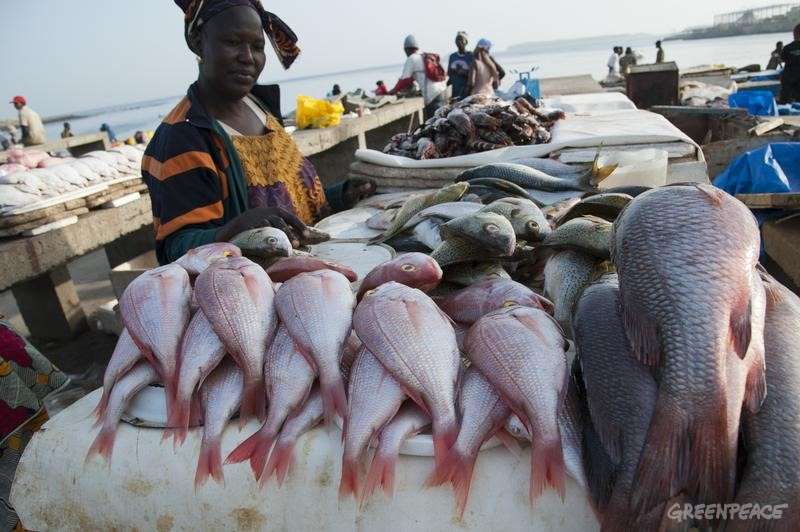Read in
Image: Greenpeace
A key fisheries and aquaculture development programme implemented by the Food and Agriculture Organization of the United Nations (FAO) has highlighted significant potential to boost these sectors in Côte d’Ivoire, Senegal, Tanzania, Guyana and the Marshall Islands, making them more self-sufficient, creating jobs and preserving biological stock levels.
The countries are the first five of 12 African, Caribbean and Pacific states analysed by the global fish value chain development programme, FISH4ACP. Implemented by FAO, this initiative of the Organisation of African, Caribbean and Pacific States (OACPS) focuses on making fisheries and aquaculture value chains more productive and sustainable, with an emphasis on supporting women given their crucial role in fish value chains – the whole process of adding value to the product.
“This initiative marks an important step towards a blue transformation of fisheries and aquaculture in Africa, the Caribbean and the Pacific, benefitting not just fishers and their communities but ensuring that growth goes hand in hand with environmental sustainability and social inclusiveness,” says FAO’s Gilles Van De Walle, Chief Technical Adviser, FISH4ACP.
“We are thrilled to see FISH4ACP moving into action to unlock the potential of fisheries and aquaculture in ACP countries. There is an urgency to boost our fisheries and aquaculture sectors because they greatly contribute to economic growth, decent jobs, and food and nutrition security,” says Cristelle Pratt, Assistant Secretary-General, OACPS.
EU and Germany funding
FISH4ACP is being implemented with €47 million in funding from the European Union and the German Federal Ministry for Economic Cooperation and Development (BmZ).
“The focus on all three aspects of sustainability – the economic, the environmental and the social – sets this programme apart. Now that FISH4ACP is entering a new phase, it will be able to strike a balance between production and protection, to contribute towards fair income distribution and decent working conditions and to champion sustainable fisheries and aquaculture in Africa, the Caribbean and the Pacific,” says Leonard Mizzi, the EU’s Head of Unit in Directorate General for International Partnerships.
“We are delighted to see that FISH4ACP is now ready to put its comprehensive value chain approach at work in support of fisheries and aquaculture development. It is key that it takes all players into account, at all stages – from net to plate. FISH4ACP’s innovative approach will boost the supply of aquatic foods, economic returns and social equity, and reduce negative impacts on the marine environment,” says Hendrik Denker, deputy head of the BmZ Division for Food and Nutrition Security, Global Food Policy and Fisheries.
The publication of its first five reports provides a baseline for supporting the countries in strengthening their fish value chains, increasing self-sufficiency in fish production, creating local jobs and maintaining sustainable stock levels.



